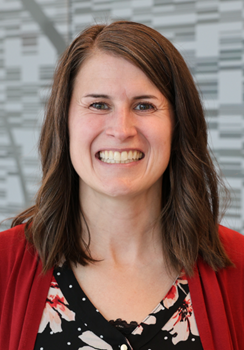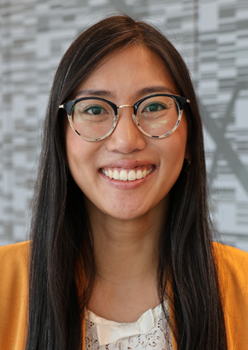Our City
300 Days of Sunshine
Denver is known for its beautiful weather, sweeping views, excellent city life, and an array of outdoor activities courtesy of our proximity to the magnificent Rocky Mountains
The Pediatric Epilepsy Fellowship Program offered through the University of Colorado Denver School of Medicine and Children’s Hospital Colorado is an accredited epilepsy fellowship through the ACGME, effective July 1, 2014. The program offers a one-year clinical fellowship in pediatric epilepsy.
The fellowship in pediatric epilepsy was designed to be completed in one (1) academic year. The fellowship is a combination of outpatient care of pediatric epilepsy patients, including experience in the ketogenic diet, vagal nerve stimulation and drug studies, epilepsy monitoring and intra and extra operative functional cortical mapping, evoked potential (ESEP, VEP and BAEP) and the opportunity for research oriented curricular work.
The general goal of the epilepsy fellowship is to train motivated child neurology graduates in the subspecialty care of pediatric epilepsy patients. This includes advanced understanding in the medical management, and the identification and pre-surgical evaluation of intractable pediatric epilepsy patients, as well as the development of an ongoing clinical/bench research interest. The graduate should be able to diagnose and care for patients with epilepsy, including those with complications and diagnostic uncertainties.
The Specific Program Objectives are:
Teaching is provided by the program director and other faculty. Faculty are certified by the ABPN with special qualification in child neurology and also have board certification in neurophysiology and have diverse interests and skills to meet the broad needs to provide the breadth of teaching necessary. The faculty actively pursue scholarly activities in the neurosciences and encourage fellows to do the same.
Our City
300 Days of Sunshine
Denver is known for its beautiful weather, sweeping views, excellent city life, and an array of outdoor activities courtesy of our proximity to the magnificent Rocky MountainsOur Hospital
Ranked No. 1 in the Rocky Mountain Region
Children's Hospital Colorado consistently ranks in the top 20 on the US News Best Children's Hospitals Honor Roll and as the #1 Children's Hospital in Colorado and the Rocky Mountain regionOur Department
NAEC Level 4 Epilepsy Center
We care for babies, kids and young adults, ranging from those who have just experienced their first seizure to those suffering from chronic and debilitating epilepsy.Direct supervision by epilepsy faculty in continuity clinics will demand excellence in interpersonal communication and will foster compassionate and state of the art pediatric patient care in the out-patient setting. Through this direct mentorship, advancements in biomedical, clinical, and cognate knowledge in the field of epilepsy will be learned. In the epilepsy continuity clinic, the fellow will obtain skills in system-based practice as well as practice based learning objectives. Additionally, training in the management of the Epilepsy Monitoring Unit will encourage the development of professionalism and ethics, as a diverse patient population, as well as diverse members of the evaluation team must be managed.
 |  |
| Katie Bonds, DO | Eileen Ser, MD |
Kristen Park, MD, Program Director, Pediatric Epilepsy Fellowship Program
Associate Professor of Pediatrics & Neurology
Kevin Ess, MD, PhD, Chair
Professor of Neurology & Pediatrics
Krista Eschbach, MD Associate Director, Pediatric Epilepsy Fellowship
Associate Professor of Neurology & Pediatrics
Scott Demarest, MD
Associate Professor of Pediatrics & Neurology
Susan Koh, MD
Clinical Professor of Pediatrics & Neurology
Kelly Knupp, MD
Professor of Pediatrics & Neurology
Epilepsy Director
Megan Abbott, MD
Assistant Professor of Pediatrics & Neurology
Julie Nelson, MD
Assistant Professor of Pediatrics & Neurology
Diana Walleigh, MD
Associate Professor of Pediatrics & Neurology
Jeremy Wong, MD
Associate Professor of Pediatrics & Neurology
We are currently recruiting for one fellow to join our program with a start date of July 8th, 2026. This position is being recruited outside of the NRMP match. Please contact Adam Finney for more information.
We will be recruiting two fellows to join our program beginning July 8th, 2027. We do participate in the NRMP match for the fellowship. More information can be found on the AES website.
These criteria aim to ensure that residents and fellows selected for our programs are aligned with our core principles and are dedicated to contributing positively to the program's mission and values.
The University of Colorado offers salary and benefits packages that are competitive with other fellowship programs across the country. View current salary levels.
Your ERAS application must include the following minimum requirements
Application materials should be submitted in ERAS
Adam Finney
Education Coordinator, Child Neurology
13123 E. 16th Ave., B155
Aurora, CO 80045
Tel: (720) 777-2704
Kristen Park, MD
Fellowship Program Director
Children's Hospital Colorado
Child Neurology
13123 East 16th Avenue, B-155
Aurora, CO 80045
Tel: (720) 777-6895
The Mile High City is nestled at the eastern base of the Rocky Mountains and is the largest city in the region with a population of 2.8 million. Denver enjoys one of the best climates in the country, with 300 days/year of sunny skies. Although it snows in the winter, the snow melts quickly and temperatures are usually moderate. Hot summer days give way to cool summer evenings.
The city is the home to dozens of highly rated restaurants and a vibrant nightlife. The city attracts many outdoor enthusiasts with its extensive system of hiking and bike trails and the largest city park system in the country.
The Denver Center for the Performing Arts is the largest performing arts complex under one roof in the country and attracts many of the top national theater tours each year. Red Rocks Amphitheater, a natural amphitheater in the foothills west of town attracts the nation’s top touring musical talent throughout the summer.
Denver is home to the Denver Broncos (NFL), the Denver Nuggets (NBA), the Colorado Rockies (MLB), the Colorado Avalanche (NHL), the Colorado Rapids (MLS) and the Colorado Outlaws (MLL).
The University of Colorado, the state flagship school and a world-class educational institution, is based in nearby Boulder. In addition, Denver is the gateway to the Rocky Mountains, which offer abundant recreational and sightseeing opportunities year round. The state of Colorado is home to over 20 major ski areas, many of which are within 2 hours of the city.
For more information, please visit the Denver Travel and Visitor Bureau.
| Tour Children's Hospital Colorado... |